The Differences Between Long Form and Short Form Content

Over the last several years, we've seen a trend in content marketing of increasing the length of content. I remarked upon this in my research study about the average word count for online content. A decade ago, it was rare to see a piece of content on a website longer than 500 words. These days, it's rare to see anything shorter than 1,000. Even that, I would say, constitutes "short-form content."
There's a bit of a debate going on right now. You can, broadly, split your content into two groups: short-form and long-form.
Some people argue that short-form content is better for a modern audience since we're all constantly pressed for time and don't have the luxury of spending 10 minutes reading 5,000 words every time we have a question we want to be answered. Other people argue that short-form content is too short to have any tangible value, so it's not worth producing.
You can cite examples on both sides, with successful sites that use one form or the other. For example, sites like Forbes or HuffPo tend to publish content under 1,000 words long; in my writing for Forbes, they tell me that content averaging 750 words does best on their platform, so I had to limit my articles to accommodate that word count limitation.
Conversely, many high-end blogs in the marketing space consistently write articles that are 2,000 words or longer. I aim for at least 2,000 words for just about everything I write and often try to exceed that. Some of my posts are over 4,000 words on deeper and more competitive topics.
Let's dig into these two a bit on what they are and how they are different.
The Definitions of Long-Form and Short-Form
Before we dig any deeper, one thing I like to do is examine definitions for terms used throughout a post. In this case, since I'm talking about long-form and short-form content, we should define what we mean by that.
In virtually every post I've seen about this topic online, the number 2,000 comes up - around 2,000 words and longer is what most people consider long-form content. Anything under it is generally considered short-form.
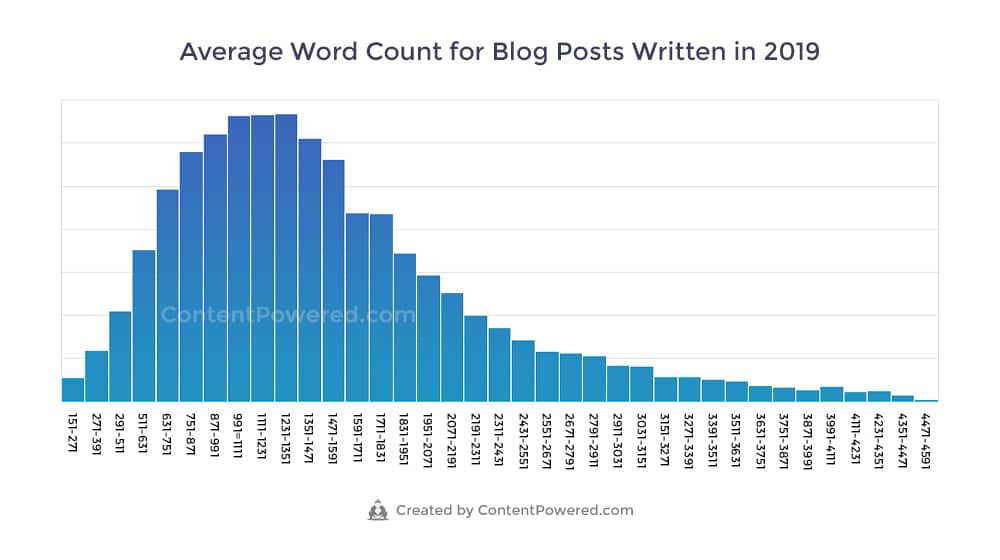
Now, does that mean a blog post 1,900 words long is a short-form post? Technically, sure, but that's not the spirit of the definition. Short-form content is content that is "around 1,000 words" in most definitions. I might even set the number at somewhere around 1,500 words. Anything under 1,500 could be considered short-form, anything over it is long-form, with some variability depending on the quality and fluff levels of the content.
Luckily, we're not talking about anything tricky here today. Honestly, a short blog post with a handful of deep videos embedded in them and an infographic to round it up sounds like long-form content to me, even if the actual word count is lower.
As a content marketer, I spend a lot of time thinking about word count and content value. I've written about it before if you want some context on what my opinions are before you read deeper here. You can check out my analysis of the problems of 500-word content, and my dig into the diminishing returns of longer word counts.
The Argument for Short-Form Content
I already mentioned one of the primary arguments in favor of short-form content, and that's the attention span of the average user. I feel like this isn't much of an argument at all.
What does a blog reader do – what do you do – when you have a question you want to be answered? You click on a few Google results and see what comes up. If a result is a long blog post, what do you do in that post?
You skim it.
Think about all of the studies performed into how readers actually read content in an F shape or how 73% of people skim blog posts as they read. People don't read long-form content unless they're interested in the details. What they do instead is skim them.

"So why make long-form content if people don't read it?" you might ask. Well, think of it this way. If a reader visits your short-form article and skims it looking for their answer, you have 1,000 words to get it right. If you're not laser-focused on their answer, they aren't going to get it, and they aren't going to be satisfied. Conversely, with long-form content, you have more chances.
The Benefits of Long-Form Content
Long-form content just has a lot more going for it than short-form content. You can do a lot more in more space. The argument that people won't read all of it falls flat, because you don't expect people to read all of it. You expect people to skim to a section that they want to read and will then read that section. That's why I provide a table of contents for my posts; to make it easier to reach the specific section you want to read.
1. Long-form content can provide deeper insights into a given topic. Imagine if I was writing a short-form post on the topic we're currently reading about. I'd be ending it right about here; this is about 850 words into the post. That's not a lot of time to really dig in, now is it? How much value can you really put forth in a short-form post?
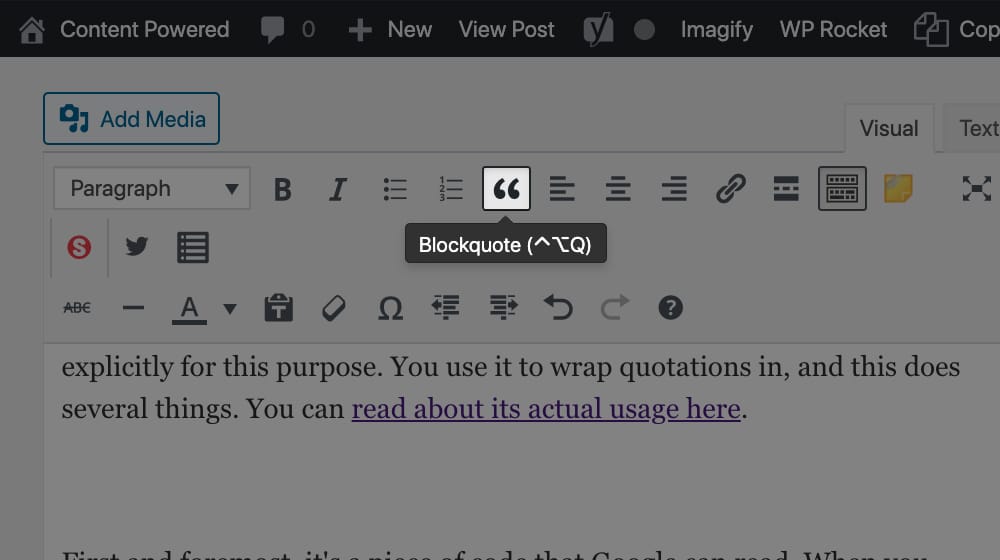
I often find myself hitting 1,000 words just on the intro, setup, and background information needed to really dig into a topic. Trying to write a full, valuable post in only 1,000 words sounds like insanity to me. By striving for a larger word count, you can provide examples, quotes, links, and other information to add extra value and insights to your article.
2. Long-form content is able to provide examples. One of the biggest shortfalls of short-form content is the lack of space to provide examples and evidence to support claims. If I were writing this post in short-form, I could just tell you that long-form is better, and this entire section about "why" would be a little more than a few bullet list statements. When you're not worried about keeping your content short, you can dig deeper and provide evidence, citations, and examples to back up your claims.
3. Long-form content can address common comments. You make a claim, and people want to know more about it. Why are you making the claim? What supports your claim? What should they do if your claim is true? Rather than rely on users to ask those questions in the comments section, you can preemptively answer them in the text. Not only does this give your content more value, but it also shows you understand your audience and can provide them with the content they actually want and can use.
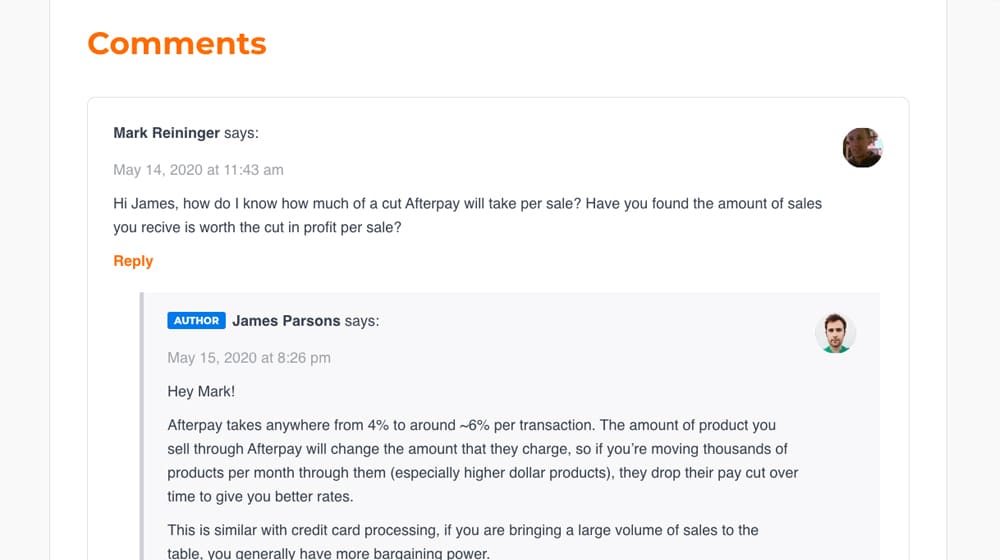
4. Long-form content can have additional content features. What do I mean by that? Think about formats like pros and cons lists, categorized reviews, and tables of data. A short-form piece of content might have a short, simple version of one or two of those, but often they're just a handful of paragraphs, a stock image, and maybe a heading or two.
5. Long-form content has more room for networking. This is another one that might need a little explanation. Some of the best content for networking are quotes articles. You come up with a question, and you send that question to 10-20-50-100 influencers in your industry. Many of them won't respond, but some will. You can take their quotes and reproduce them in your post, which is plenty of content already. Then you can add more information to elaborate on what they say and what authority they have to say it. These posts can easily stretch into 3K or more words, depending on how elaborate the answers are and how many influencers you asked (and got to respond).
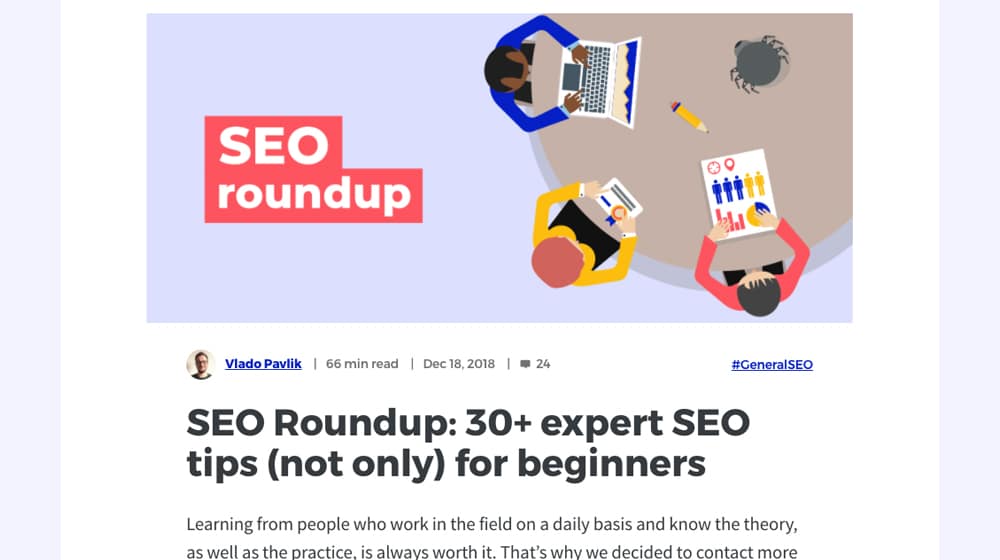
The best part is, every single one of those quotes is a chance to network within your industry. You're reproducing their content, sharing their expertise and thought leadership with your audience, and providing them links to their sites. That's a lot of value they get out of just answering a question, and it makes them generally more receptive to future networking efforts and outreach.
6. Long-form content allows for better organization. I already mentioned the table of contents above, but long-form content allows for a better organization of content. You can write an outline with sub-sections and sub-headings for specific topics you want to cover, arrange it all logically, and write that content in a fluid, continuous manner. This kind of organization makes it easier to skim and easier to read in-depth, so it works better for all kinds of users.
7. Long-form content allows for more thought, research, and depth to your content. This is by far the biggest benefit to long-form content. When you're writing short-form content, you don't have as high a ceiling for return on investment. That's why short-form content is often news-focused content, useful for a day or a week and never again. Meanwhile, long-form content can have:
- Infographics with detailed breakdowns on each point.
- Broader research into the topic, so you can mention related topics and link to other pieces of content you've produced about those topics, keeping everything interconnected.
- Deeper research into the topic, so you can drill down not just into a surface-level problem and solution, but to deeper solutions, the rationale as to why some work or don't, and other reasoning.
- More space for related and interrelated keywords and phrases, allowing one good piece of content to rank well for several queries and keywords, rather than just one.
Since you're spending more time on producing long-form content, you want it to do well. This leads me to my next point…
8. Long-form content encourages better SEO research. Writing short-form content is often a matter of 30-60 minutes. You have a simple keyword, you have a simple question, you write a simple post with a simple answer. It doesn't take much to get it up and running.
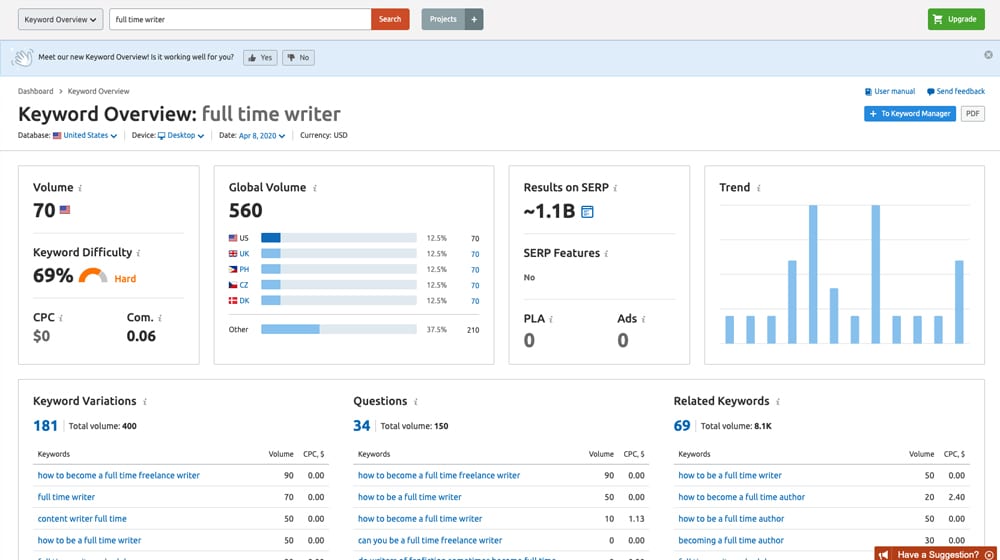
Long-form content is a much greater investment. You need to spend time digging into the topic and actually learning about it. You need to figure out who the target audience is, where the customer is in their buyer journey, what interests they have, and how to tie it all together.
With so much thought, effort, and time invested in your long-form content, you have a lot more to lose if that content doesn't perform well. So, you do what you can to make it perform well. You do competitive research, you figure out how to 10x your competition, you do more research to make sure your content is well-understood.
Yes, it's a lot of work, but consider the differences. Short-form content can rank okay for a few days (if it's about something newsworthy), but then it fades. Long-form content can become an evergreen powerhouse - an industry resource that is well-read, linked to, and referenced for years to come. Which would you rather have?
9. Long-form content does better with Google. Every successful example of short-form content has one thing in common: the brand producing it is huge. Forbes doesn't need to care about SEO rules. You? You do. And if there's one thing Google has made clear, it's that they have a preference for long-form content.
Situations Where Short-Form Content Works
Now short-form content wouldn't exist if it didn't work sometimes. There are definitely occasions where short-form content can work.
1. When your site is focused on volumes of content. Sites like the aforementioned HuffPo tend to focus on large volumes of shorter content, with the occasional deeper reporting or editorial that digs in and becomes a piece of pillar content. Don't get me wrong; this is just as much work as long-form content because you're creating dozens or hundreds of pieces of content per week instead of one or two. You just have to recognize that the power of any individual piece of content is minimal at best.
2. When you're including multimedia. Some short-form content is essentially just a "shell" for a deeper piece of multimedia. It's questionable whether that really counts as short-form content, though, since the video or media you produce is long-form itself. It's an edge case.
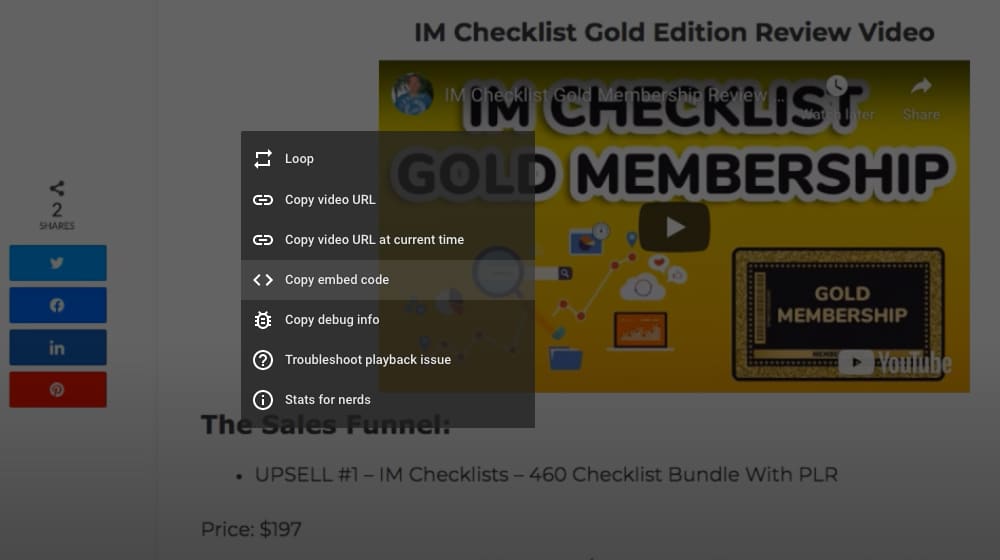
3. When your brand carries a lot of power. There are a few thought leaders and high-power entrepreneurs who maintain personal blogs where they only post once a month or so, and it's usually just random thoughts that come to mind. In those cases, the individual's reputation and connections make their blog successful, and the content really doesn't matter.
4. When your content is part of a larger whole. Think about something like, say, Wikipedia. Many individual wiki pages are quite short, but they're part of a larger whole on a given topic. If users expect to be navigating through a network of interconnected, shorter pieces of content, that gives you a lot more room to write short-form content as part of a larger whole.
For most bloggers, though? Long-form is the way to go.










February 18, 2021
Are there any practical applications for short form content?
February 18, 2021
Hey David! Good question.
It depends on what kind of page you're working on.
For example, product descriptions are usually short-form content.
It usually doesn't make sense to include a 2,000-word product description, and that would be hard for the reader to digest anyway.
Besides, product pages have other elements of content on them, like reviews, ingredients, technical details, user uploaded photos and videos, features, and things to further beef up those pages.
With blog content, though, the competition gets a bit steeper.
If the average blog post that is ranking for the topic you're about to write about is 1,500 words, it's unrealistic to try to compete with a short-form 600 word article of your own. Somebody else already wrote something similar, except they went into quite a bit more detail and may have done it better than yours.
Word count isn't everything, though, and there are applications for short-form content. I think when in doubt, more is better. We like the Rand Fishkin "10x strategy" - do what your competitors are doing and try to do it 10x better. This way, you're not giving search engines and users much of a choice. Your content will be definitively better in every way.
July 05, 2021
I usually do 1000 words per blog and post twice a week. Do you think doing 2k per article and posting once a week is better?
July 08, 2021
Hey Henry!
Yes, this would most likely suit you better, especially when covering more competitive topics.
Word count isn't everything, but generally, longer and more comprehensive articles are better articles. I'd rather have fewer higher-quality articles than a higher amount of shorter articles. I think 2000-3000 words is the sweet spot where you're competing at a high level, attracting more visitors, and giving your readers more value.